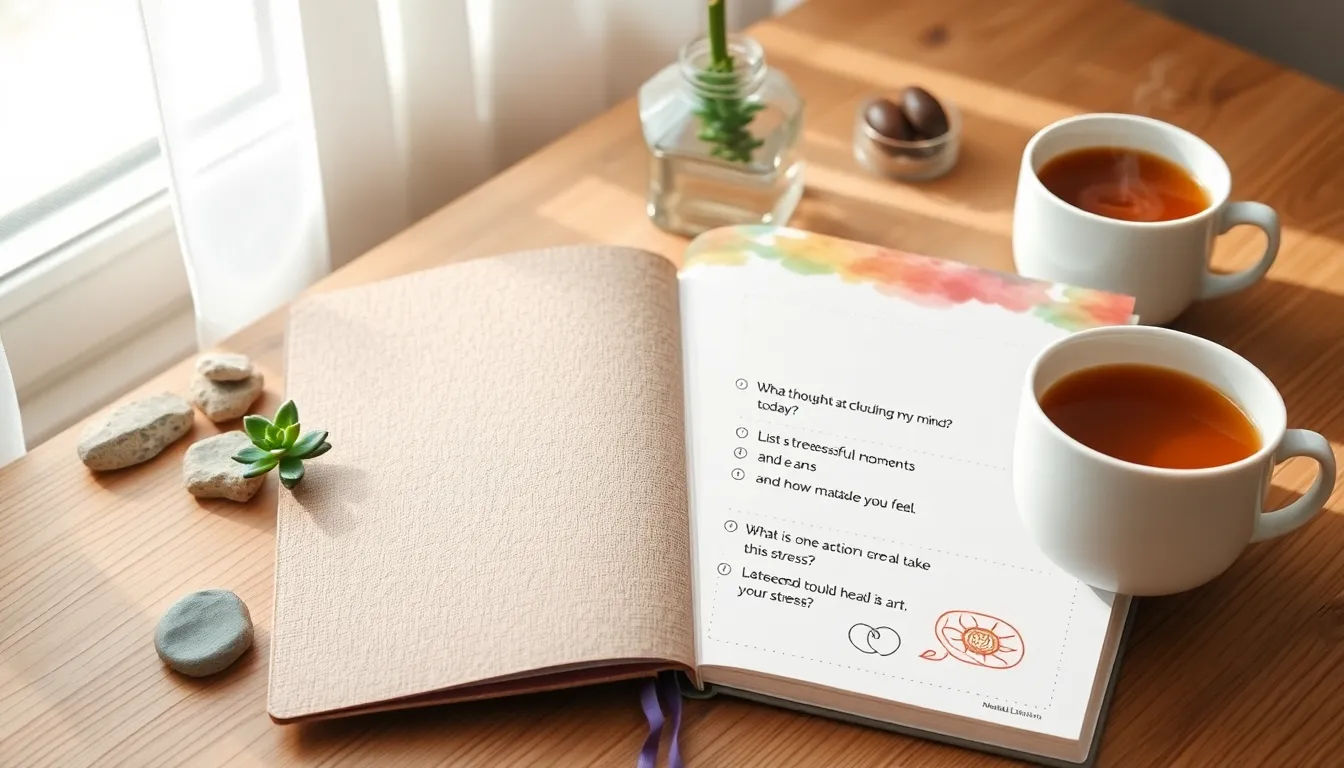In our fast-paced world, stress can cloud our thoughts and overwhelm our emotions. Journaling is a gentle yet powerful tool to clear mental fog and find peace amidst chaos.
Dive into this guide to discover how putting pen to paper can unlock mental clarity, providing a soothing refuge and fresh perspective when you need it most.
Understanding Journaling’s Mental Benefits
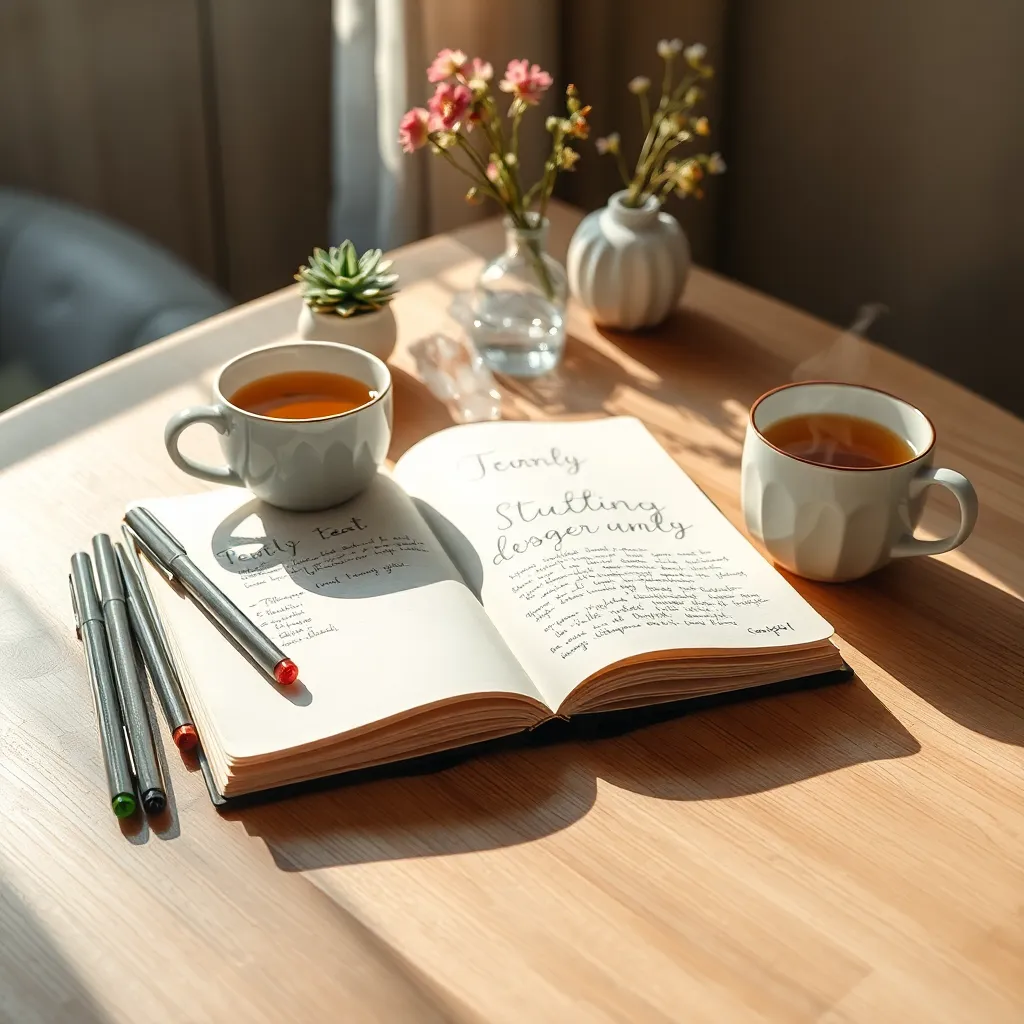
Journaling offers a pathway to mental clarity by helping you process emotions and thoughts. Try the ‘brain dump’ technique: write freely without judgment to clear mental clutter. This releases stress and fosters understanding.
To deepen clarity, consider using specific prompts. Reflect on these:
- What am I grateful for today?
- What is causing me stress right now?
These prompts guide your focus, promoting insight and calm.
Choosing the Right Journaling Tools
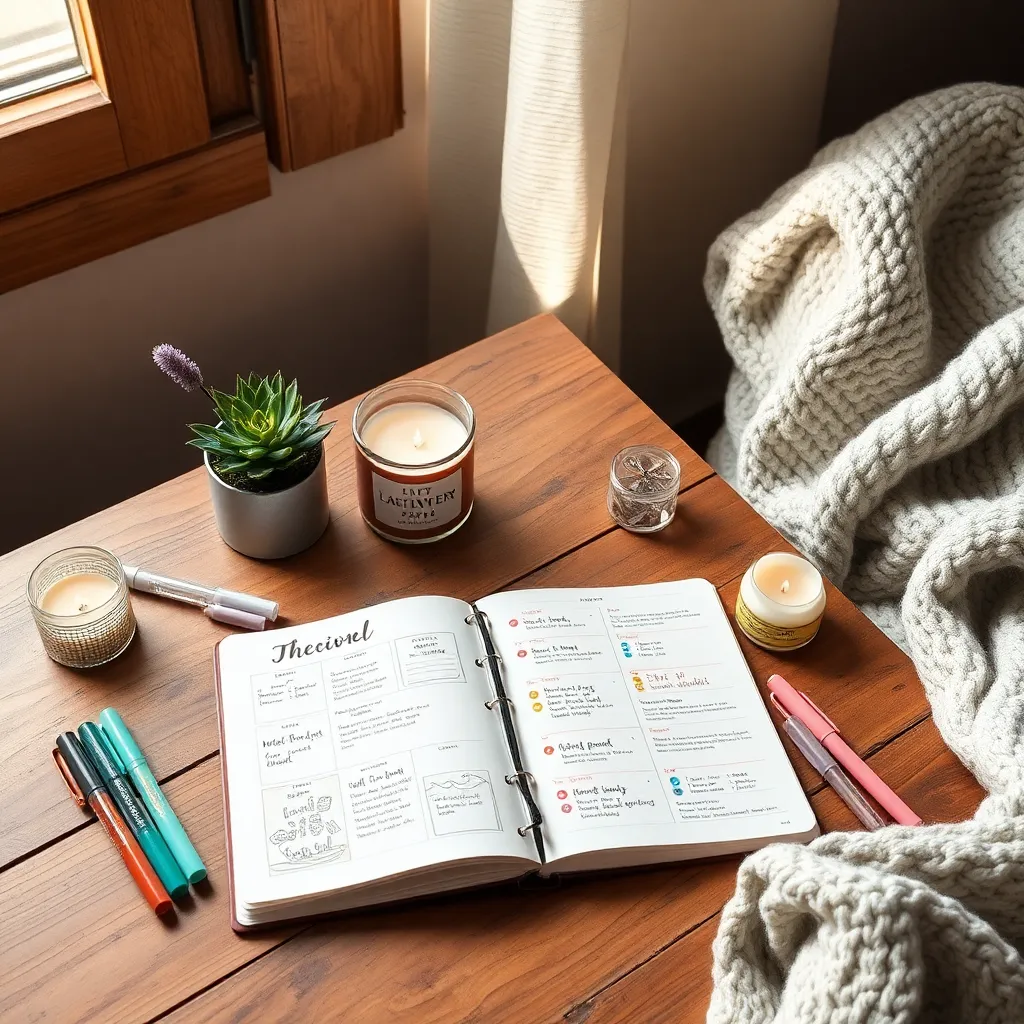
Finding the right journaling tools can transform your practice. Opt for a simple notebook and a pen that feels comfortable. Digital options like apps can also offer convenience and accessibility.
To guide your writing, consider prompts like:
- “What am I grateful for today?”
- “What’s one thing I want to release?”
These help focus thoughts and bring clarity during stressful times.
Techniques for Stress-Relief Writing
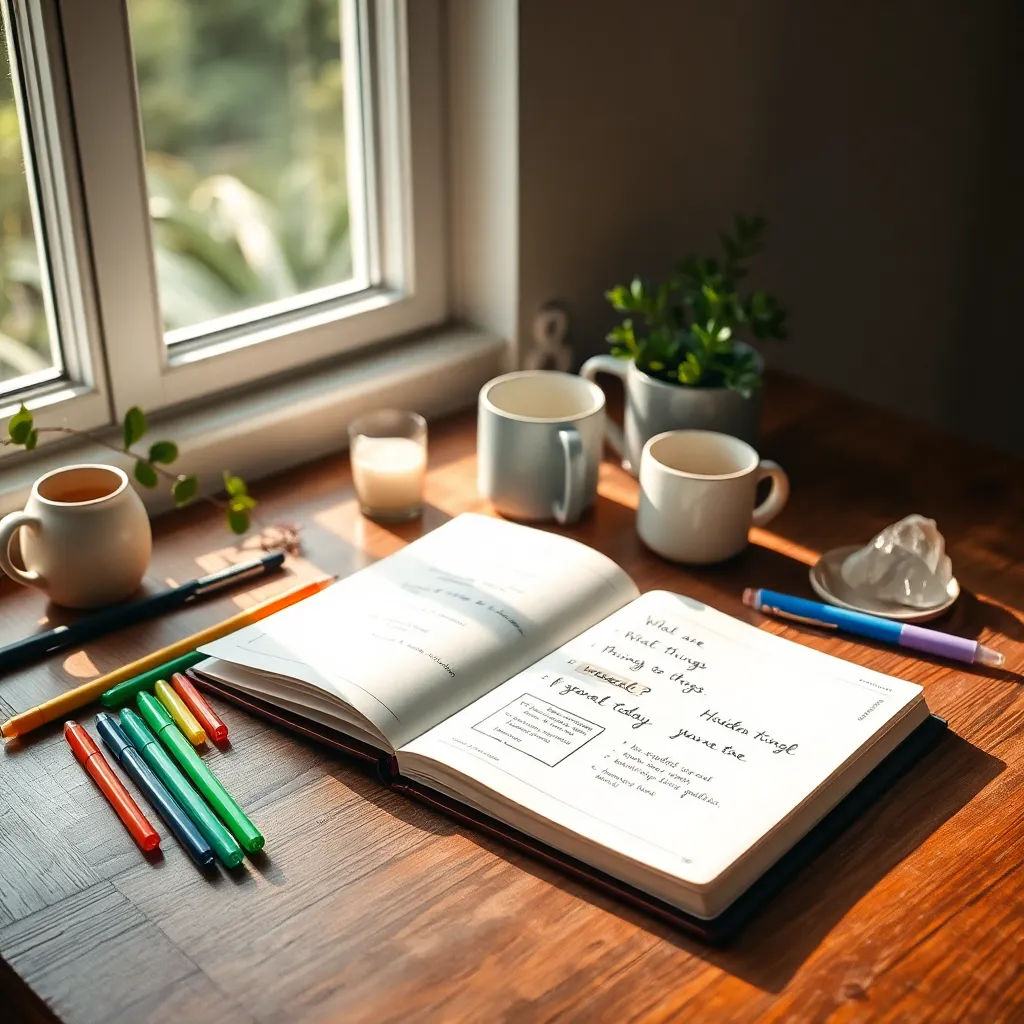
Begin with a simple gratitude prompt to ease tension: “What are three things I’m grateful for today?” This shifts focus from stress to positivity, enhancing mental clarity.
Another effective method is the stress dump. Write freely for five minutes about current worries. This releases mental burden, allowing space for solutions and calm.
Reflective Practices for Clearer Thoughts

Begin by setting aside a few quiet minutes each day to journal. Use prompts like: “What three things am I grateful for today?” or “What is one small step I can take to alleviate my stress?” to focus your thoughts.
Engage in reflective writing to gain clarity. Consider questions such as:
- “What did I learn about myself this week?”
- “How did I overcome a recent challenge?”
Let your insights guide you towards inner peace.
Integrating Journaling into Daily Life
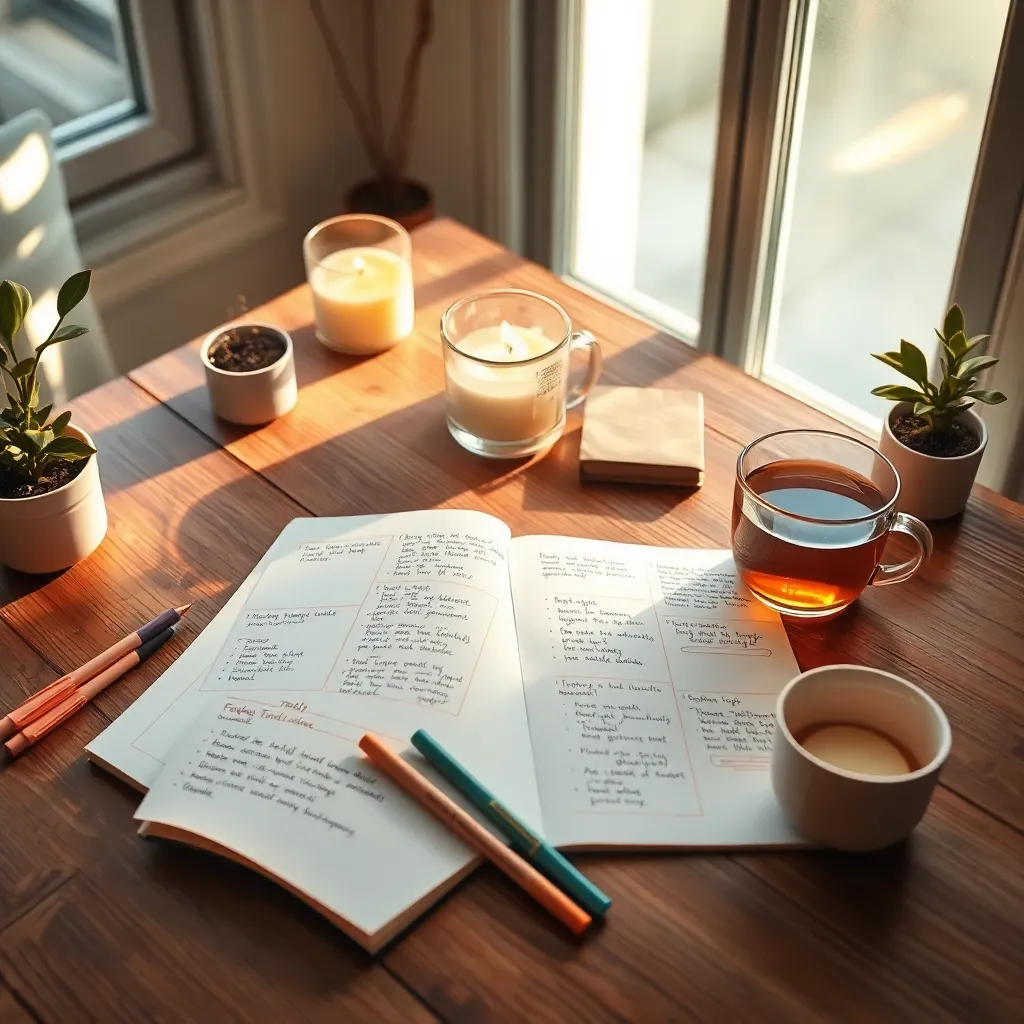
Begin each day by jotting down three things you’re grateful for. This simple practice can shift your mindset and provide mental clarity. Consistently noting gratitude enhances optimism and reduces stress.
In the evening, reflect with one positive moment from your day. This reinforces positive thinking and helps unwind. Try prompts like:
- What made you smile today?
- How did you show kindness?
Conclusion: Creating Beautiful Outdoor Spaces
In navigating the tumultuous waters of stress, journaling emerges as a beacon of clarity and connection in relationships. Through this exploration, we’ve delved into the importance of self-awareness, the power of reflective listening, the nurturing of empathy, the art of expressing gratitude, and the strength found in setting healthy boundaries. Each concept serves as a foundational pillar, fortifying your relationships with resilience and understanding.
As your next step, consider dedicating just ten minutes a day to journaling. Reflect on your interactions and emotions, allowing this practice to illuminate areas where growth is needed. This simple commitment can transform how you relate to yourself and others, fostering deeper connections and peace of mind.
Remember, the journey to stronger relationships is ongoing. Save or bookmark this article as a handy guide for those moments when you seek clarity or inspiration. By revisiting these insights, you’re investing in a future where your relationships thrive with mutual respect and understanding. Embrace this opportunity to nurture love and connection; the rewards are immeasurable and enduring.

